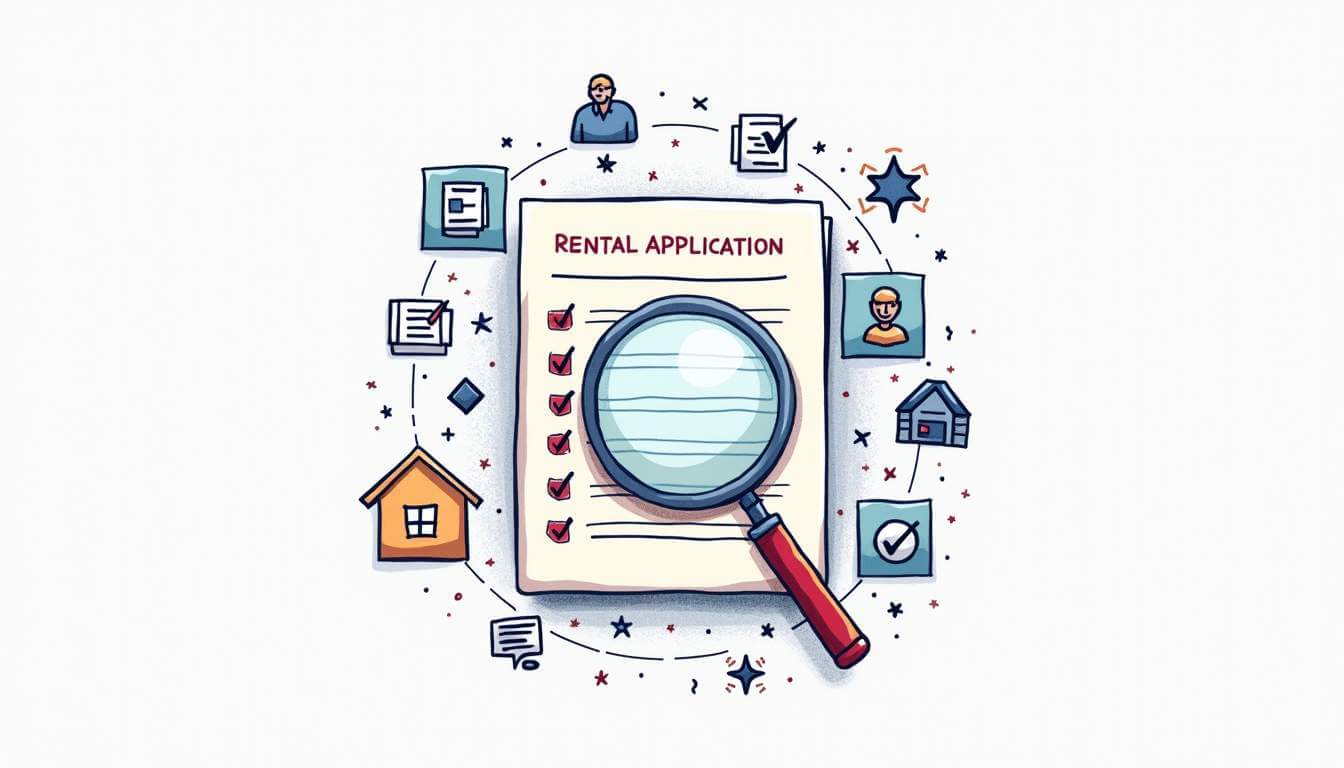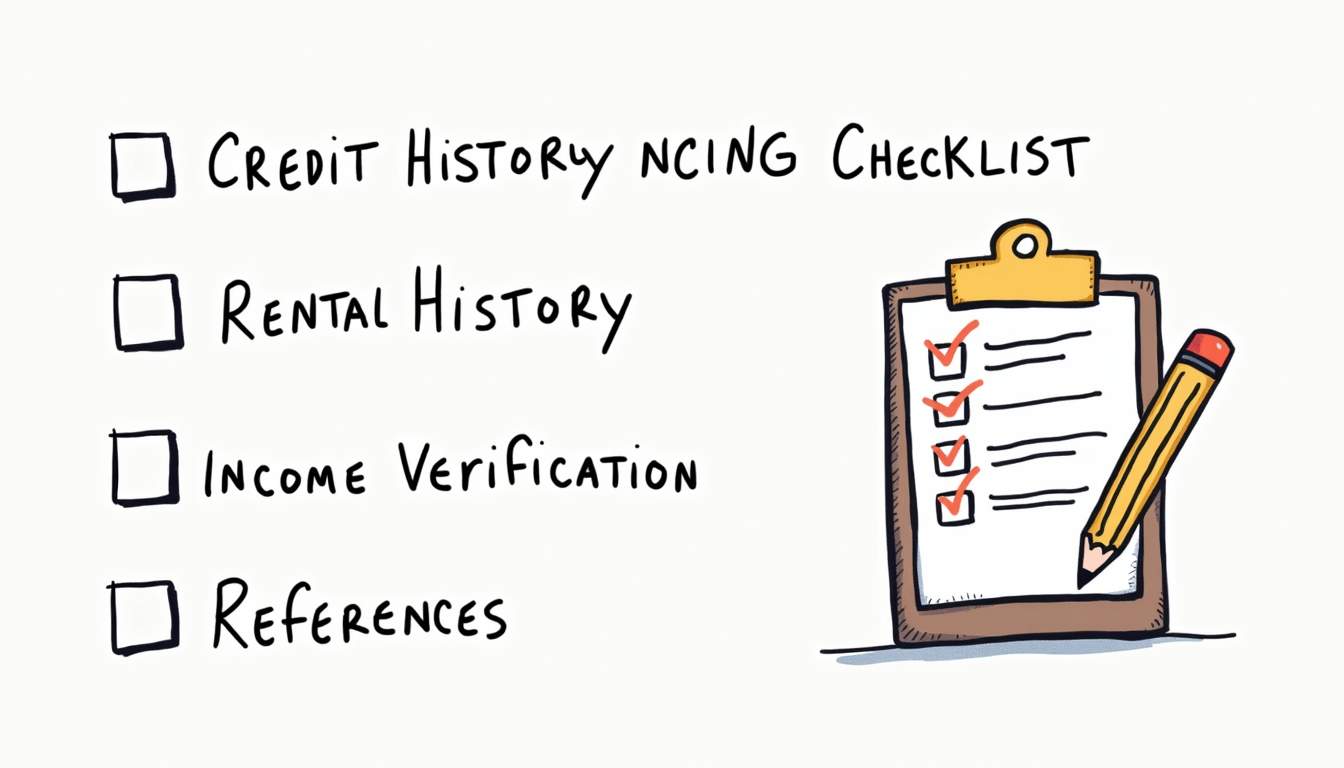Tenant background checks are crucial for landlords and property managers in the UK. Conducting thorough screening can help you select the best tenants, minimize risks, and maintain the integrity of your rental properties. In this article, we’ll explore the various aspects of tenant background checks, the importance of these checks, and guidelines to ensure a fair and legal screening process.
Understanding the Importance of Tenant Background Checks
Tenant background checks are essential for numerous reasons, primarily aimed at protecting both landlords and tenants. They provide valuable insights into a prospective tenant’s history, which can influence your decision significantly.
In a competitive rental market, ensuring that you choose reliable tenants can save you time and money in the long run. Background checks can help you avoid problematic tenants who could cause damages, delays in rent payments, or even legal disputes. Moreover, having a thorough understanding of a tenant’s background can also provide peace of mind, allowing landlords to focus on other important aspects of property management without the constant worry of potential issues arising from a tenant’s behavior or reliability.
Additionally, tenant background checks can help landlords identify red flags that might indicate future problems. For instance, a history of frequent evictions or a poor credit score can signal that a tenant may struggle to meet their rental obligations. By being proactive in your screening process, you can establish a more stable and harmonious rental environment, which ultimately benefits everyone involved.
Legal Aspects of Tenant Screening
In the UK, tenant screening must adhere to specific legal guidelines. The primary legislation governing these checks includes the Data Protection Act 2018 and the General Data Protection Regulation (GDPR). These laws protect the personal data of individuals, and as a landlord, you’re required to collect and process this information in a lawful, fair, and transparent manner.
It’s crucial to obtain consent from the potential tenant before conducting any checks. Failing to do so can result in significant fines and legal repercussions. Ensuring that you’re compliant with these laws is not just about avoiding penalties; it also helps build trust with your tenants. By being transparent about the screening process and how their data will be used, landlords can foster a sense of security and respect, which can lead to a more positive relationship from the outset.
Furthermore, landlords should also be aware of the importance of keeping records of the checks conducted and the reasons for their decisions. This documentation can be invaluable in case of disputes or if a tenant challenges a decision made based on the background check. By maintaining thorough records, landlords can protect themselves legally and demonstrate that they have acted fairly and responsibly throughout the tenant selection process.
Benefits of Thorough Tenant Checks
Comprehensive tenant checks offer numerous benefits. Firstly, they allow you to mitigate risks effectively. By thoroughly evaluating a tenant’s financial stability and rental history, you can make informed decisions that prevent future complications.
Secondly, thorough checks help foster a positive rental experience for both parties. A reliable tenant is likely to maintain the property well, pay rent on time, and refrain from causing disturbances, leading to a smoother landlord-tenant relationship. This not only enhances the overall atmosphere of the property but also contributes to the long-term success of your rental business.
Additionally, conducting thorough tenant checks can also enhance your reputation as a landlord. A good reputation can attract quality tenants who are looking for a trustworthy landlord to rent from. When prospective tenants see that you take the screening process seriously, they may be more inclined to apply, knowing that you prioritize a safe and respectful living environment. This can create a positive cycle where good tenants seek you out, further improving your rental experience and property management success.
The Tenant Background Check Process
The background check process typically involves several stages, each designed to gather critical information that informs your decision-making. It’s essential to follow a structured approach to ensure that you cover all bases.
Gathering Initial Information
Before diving into detailed checks, the initial information gathering is critical. This step usually involves collecting personal details from the prospective tenant, including their full name, contact information, National Insurance number, and previous addresses.
Additionally, requesting information about their employment status, income, and reasons for moving can give you insight into their reliability as a tenant. This initial data lays the groundwork for more in-depth verification.
Credit Checks and Financial History
Credit checks are one of the most vital components of tenant background checks. They provide a snapshot of the tenant’s financial responsibility and ability to pay rent consistently. Usually carried out through credit reference agencies, these checks reveal a tenant’s credit score, outstanding debts, and payment history.
It’s important to recognize that not all tenants have perfect credit. A less-than-stellar credit score doesn’t automatically disqualify a tenant. Context matters; understanding the reasons behind a poor score can provide valuable perspective on their situation.
Criminal Record Checks
Conducting criminal record checks is another aspect of the tenant screening process. These checks can help you identify any previous convictions that may raise concerns regarding safety or property damage. However, when conducting such checks, it’s essential to adhere to regulations and only access information as permitted by law.
This aspect of screening can be sensitive. It’s important to treat this data responsibly and consider rehabilitation efforts before forming a judgment based solely on criminal history.
Key Components of a Comprehensive Tenant Check
While credit and criminal checks are vital, several other components round out a thorough tenant background check. Ensuring you cover all these areas can help you make a well-informed rental decision.
Employment Verification
Verifying employment is a key step that confirms a tenant’s financial ability to meet their rental obligations. Contacting the tenant’s employer can provide you with insights into their job stability and income level.
It’s advisable to ask for written confirmation of their employment, including their position, start date, and salary. This extra step can help you avoid potential issues related to income verification in the future.
Previous Landlord References
Obtaining references from previous landlords can offer you a glimpse into the tenant’s rental history. If possible, try to reach out to at least two former landlords to understand how the tenant behaved during their previous tenancy, including their reliability in paying rent and maintaining the property.
These references can be invaluable in assessing how the tenant may perform in your rental unit and whether they were respectful and responsible in their past accommodations.
Personal References
In addition to professional references, personal references can also help you gauge a tenant’s character. These can be friends, family, or colleagues who can vouch for the tenant’s reliability and integrity. It’s typically better to avoid relying solely on personal references for pivotal decisions, as they may be biased.
Nonetheless, they can provide additional context, especially in cases where tenants may not have a robust history of renting.
Privacy Considerations during Tenant Screening
While background checks are necessary, privacy considerations must never be ignored. Balancing the need for information with respect for personal data is essential in this process.
Data Protection Laws and Tenant Screening
As previously mentioned, the Data Protection Act 2018 and GDPR govern how personal information is collected and processed. These regulations mean landlords must only gather data essential for assessing a tenant’s suitability.
Moreover, all data must be kept secure and used solely for its intended purpose. Any data collected that is deemed unnecessary should be disposed of responsibly. Ignoring these regulations can lead to damaging consequences for your business and reputation.
Respecting Tenant Privacy
Respecting tenant privacy during the screening process is vital. This means being transparent about the checks you intend to conduct and informing the tenant about how their information will be used.
Always provide tenants with an opportunity to discuss any concerns or questions they have regarding the background checks. This openness can foster a sense of trust and respect between you and your prospective tenants.
Dealing with the Results of a Background Check
Once you have completed the background check, the next step is to interpret the findings. With the right approach, you can evaluate the information gathered more effectively.
Evaluating the Information
When reviewing the results, it’s crucial to look at the whole picture rather than focusing solely on negative aspects. If any concerning information surfaces, evaluate it in context. Understanding the circumstances behind specific red flags can lead to informed decisions.
Consider whether the tenant has learned from past mistakes or if there are positive aspects of their history that outweigh any negatives. A balanced evaluation will help you find suitable tenants who may have correctable issues in their background.
Communicating the Results to Prospective Tenants
Communication is key after evaluating the background check results. If you decide not to proceed with a tenant application, it’s important to inform them respectfully and provide an explanation if necessary.
Transparency in this phase not only maintains goodwill but can also improve your reputation as a landlord in the long run. Always remember that every tenant deserves to be treated fairly and with respect throughout your engagement.
In conclusion, effective tenant background checks contribute to a more secure rental process. By understanding the legalities, benefits, and crucial components of screening while respecting privacy, landlords can better protect their investments and foster positive relationships with their tenants.
Streamline Your Tenant Screening with COHO
Ready to elevate your property management experience? COHO offers a comprehensive solution that integrates seamlessly with the tenant background check process. Our innovative software is tailored for managing HMOs, single-lets, student HMOs, and diverse rental portfolios, ensuring you have all the tools you need in one place. Simplify your workflows, enhance your decision-making, and build stronger landlord-tenant relationships. Try COHO for Free today and discover the difference it can make for your property management business.
Tenant background checks are crucial for landlords and property managers in the UK. Conducting thorough screening can help you select the best tenants, minimize risks, and maintain the integrity of your rental properties. In this article, we’ll explore the various aspects of tenant background checks, the importance of these checks, and guidelines to ensure a fair and legal screening process.
Understanding the Importance of Tenant Background Checks
Tenant background checks are essential for numerous reasons, primarily aimed at protecting both landlords and tenants. They provide valuable insights into a prospective tenant’s history, which can influence your decision significantly.
In a competitive rental market, ensuring that you choose reliable tenants can save you time and money in the long run. Background checks can help you avoid problematic tenants who could cause damages, delays in rent payments, or even legal disputes. Moreover, having a thorough understanding of a tenant’s background can also provide peace of mind, allowing landlords to focus on other important aspects of property management without the constant worry of potential issues arising from a tenant’s behavior or reliability.
Additionally, tenant background checks can help landlords identify red flags that might indicate future problems. For instance, a history of frequent evictions or a poor credit score can signal that a tenant may struggle to meet their rental obligations. By being proactive in your screening process, you can establish a more stable and harmonious rental environment, which ultimately benefits everyone involved.
Legal Aspects of Tenant Screening
In the UK, tenant screening must adhere to specific legal guidelines. The primary legislation governing these checks includes the Data Protection Act 2018 and the General Data Protection Regulation (GDPR). These laws protect the personal data of individuals, and as a landlord, you’re required to collect and process this information in a lawful, fair, and transparent manner.
It’s crucial to obtain consent from the potential tenant before conducting any checks. Failing to do so can result in significant fines and legal repercussions. Ensuring that you’re compliant with these laws is not just about avoiding penalties; it also helps build trust with your tenants. By being transparent about the screening process and how their data will be used, landlords can foster a sense of security and respect, which can lead to a more positive relationship from the outset.
Furthermore, landlords should also be aware of the importance of keeping records of the checks conducted and the reasons for their decisions. This documentation can be invaluable in case of disputes or if a tenant challenges a decision made based on the background check. By maintaining thorough records, landlords can protect themselves legally and demonstrate that they have acted fairly and responsibly throughout the tenant selection process.
Benefits of Thorough Tenant Checks
Comprehensive tenant checks offer numerous benefits. Firstly, they allow you to mitigate risks effectively. By thoroughly evaluating a tenant’s financial stability and rental history, you can make informed decisions that prevent future complications.
Secondly, thorough checks help foster a positive rental experience for both parties. A reliable tenant is likely to maintain the property well, pay rent on time, and refrain from causing disturbances, leading to a smoother landlord-tenant relationship. This not only enhances the overall atmosphere of the property but also contributes to the long-term success of your rental business.
Additionally, conducting thorough tenant checks can also enhance your reputation as a landlord. A good reputation can attract quality tenants who are looking for a trustworthy landlord to rent from. When prospective tenants see that you take the screening process seriously, they may be more inclined to apply, knowing that you prioritize a safe and respectful living environment. This can create a positive cycle where good tenants seek you out, further improving your rental experience and property management success.
The Tenant Background Check Process
The background check process typically involves several stages, each designed to gather critical information that informs your decision-making. It’s essential to follow a structured approach to ensure that you cover all bases.
Gathering Initial Information
Before diving into detailed checks, the initial information gathering is critical. This step usually involves collecting personal details from the prospective tenant, including their full name, contact information, National Insurance number, and previous addresses.
Additionally, requesting information about their employment status, income, and reasons for moving can give you insight into their reliability as a tenant. This initial data lays the groundwork for more in-depth verification.
Credit Checks and Financial History
Credit checks are one of the most vital components of tenant background checks. They provide a snapshot of the tenant’s financial responsibility and ability to pay rent consistently. Usually carried out through credit reference agencies, these checks reveal a tenant’s credit score, outstanding debts, and payment history.
It’s important to recognize that not all tenants have perfect credit. A less-than-stellar credit score doesn’t automatically disqualify a tenant. Context matters; understanding the reasons behind a poor score can provide valuable perspective on their situation.
Criminal Record Checks
Conducting criminal record checks is another aspect of the tenant screening process. These checks can help you identify any previous convictions that may raise concerns regarding safety or property damage. However, when conducting such checks, it’s essential to adhere to regulations and only access information as permitted by law.
This aspect of screening can be sensitive. It’s important to treat this data responsibly and consider rehabilitation efforts before forming a judgment based solely on criminal history.
Key Components of a Comprehensive Tenant Check
While credit and criminal checks are vital, several other components round out a thorough tenant background check. Ensuring you cover all these areas can help you make a well-informed rental decision.
Employment Verification
Verifying employment is a key step that confirms a tenant’s financial ability to meet their rental obligations. Contacting the tenant’s employer can provide you with insights into their job stability and income level.
It’s advisable to ask for written confirmation of their employment, including their position, start date, and salary. This extra step can help you avoid potential issues related to income verification in the future.
Previous Landlord References
Obtaining references from previous landlords can offer you a glimpse into the tenant’s rental history. If possible, try to reach out to at least two former landlords to understand how the tenant behaved during their previous tenancy, including their reliability in paying rent and maintaining the property.
These references can be invaluable in assessing how the tenant may perform in your rental unit and whether they were respectful and responsible in their past accommodations.
Personal References
In addition to professional references, personal references can also help you gauge a tenant’s character. These can be friends, family, or colleagues who can vouch for the tenant’s reliability and integrity. It’s typically better to avoid relying solely on personal references for pivotal decisions, as they may be biased.
Nonetheless, they can provide additional context, especially in cases where tenants may not have a robust history of renting.
Privacy Considerations during Tenant Screening
While background checks are necessary, privacy considerations must never be ignored. Balancing the need for information with respect for personal data is essential in this process.
Data Protection Laws and Tenant Screening
As previously mentioned, the Data Protection Act 2018 and GDPR govern how personal information is collected and processed. These regulations mean landlords must only gather data essential for assessing a tenant’s suitability.
Moreover, all data must be kept secure and used solely for its intended purpose. Any data collected that is deemed unnecessary should be disposed of responsibly. Ignoring these regulations can lead to damaging consequences for your business and reputation.
Respecting Tenant Privacy
Respecting tenant privacy during the screening process is vital. This means being transparent about the checks you intend to conduct and informing the tenant about how their information will be used.
Always provide tenants with an opportunity to discuss any concerns or questions they have regarding the background checks. This openness can foster a sense of trust and respect between you and your prospective tenants.
Dealing with the Results of a Background Check
Once you have completed the background check, the next step is to interpret the findings. With the right approach, you can evaluate the information gathered more effectively.
Evaluating the Information
When reviewing the results, it’s crucial to look at the whole picture rather than focusing solely on negative aspects. If any concerning information surfaces, evaluate it in context. Understanding the circumstances behind specific red flags can lead to informed decisions.
Consider whether the tenant has learned from past mistakes or if there are positive aspects of their history that outweigh any negatives. A balanced evaluation will help you find suitable tenants who may have correctable issues in their background.
Communicating the Results to Prospective Tenants
Communication is key after evaluating the background check results. If you decide not to proceed with a tenant application, it’s important to inform them respectfully and provide an explanation if necessary.
Transparency in this phase not only maintains goodwill but can also improve your reputation as a landlord in the long run. Always remember that every tenant deserves to be treated fairly and with respect throughout your engagement.
In conclusion, effective tenant background checks contribute to a more secure rental process. By understanding the legalities, benefits, and crucial components of screening while respecting privacy, landlords can better protect their investments and foster positive relationships with their tenants.
Streamline Your Tenant Screening with COHO
Ready to elevate your property management experience? COHO offers a comprehensive solution that integrates seamlessly with the tenant background check process. Our innovative software is tailored for managing HMOs, single-lets, student HMOs, and diverse rental portfolios, ensuring you have all the tools you need in one place. Simplify your workflows, enhance your decision-making, and build stronger landlord-tenant relationships. Try COHO for Free today and discover the difference it can make for your property management business.







